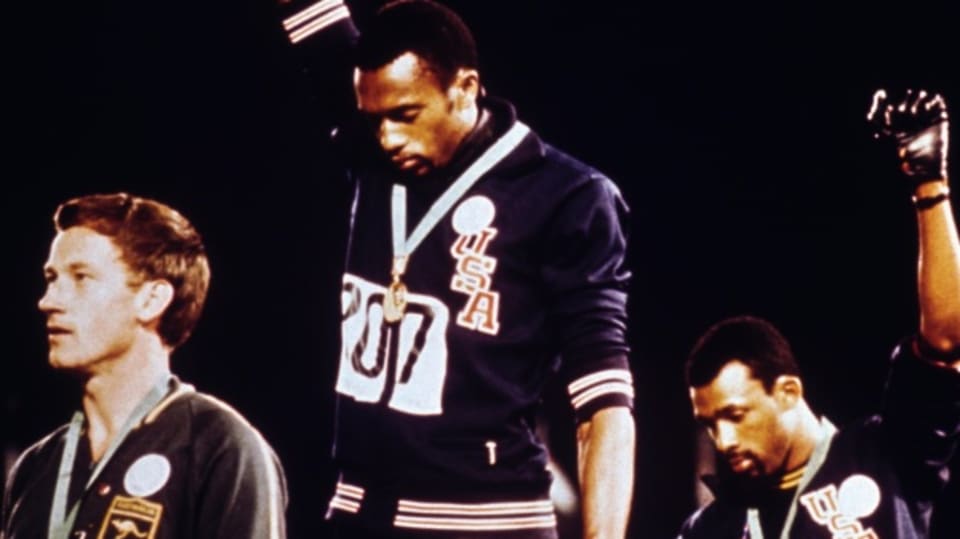200m medallists Smith and Carlos stage podium protest
Controversy and sporting brilliance in the final of the 200m. Tommie Smith and John Carlos staged a silent protest after coming first and third in the race, with the two men standing barefoot on the podium, clenched fist held in the air, as a protest against the treatment of black Americans. The image was to be shown around the world, with both men earning a fame that has lingered to this day.

Smith was a brilliant runner who held 11 world records, indoors and outdoors, at a range of distances up to 400 metres, and who could also long jump to international standard. Carlos, though, had beaten Smith in the national trials and was clearly a strong rival.
A third contender emerged during the heats, when the unsung Australian Peter Norman ran 20.2secs to break the Olympic record that Smith had tied just a few minutes earlier. It was, by some way, the fastest time of his career.
Smith equalled that time in the next round of heats, and then both Smith and Carlos ran 20.1secs in the semi-final. The problem for Smith was not the time, or his form -it was injury. He ended that semi-final race with a pulled muscle and limped away from the track. “I was 80 per cent certain that I was out,” he recalled. But the other 20 per cent was to prove decisive.
Smith made it safely to the start-line, and then through the exertion of the start itself. At the turn, Carlos was in the lead, but then Smith accelerated dramatically and decisively, overtaking his training partner, his injury forgotten. He took such a healthy lead that he was able to raise his arm in celebration ten metres from the line as he crossed in the line in a magnificent world record time of 19.83secs. Behind him, Carlos was briefly distracted by Smith's turn of pace and found himself passed by the fast-finishing Norman, who rose form sixth to second. Carlos took bronze.
The brilliance of all three athletes was overshadowed by the protest on the podium, which Norman joined. For each of them, it was the only Olympic Games in which they took part.
